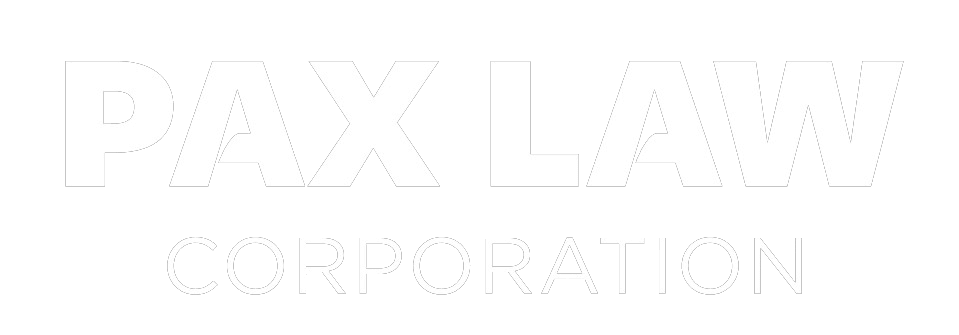In British Columbia, tenant and strata disputes are an unfortunate but common occurrence. Whether you’re a renter, a property owner, or part of a strata council, understanding how these disputes arise and how to handle them can help protect your rights and preserve harmonious relationships in shared living spaces.
Table of contents
What is a Strata?
In BC, a strata refers to a building or development divided into individually owned units and common property, such as hallways, elevators, or parking lots. Stratas are governed by the Strata Property Act, which outlines the responsibilities of owners, tenants, and strata corporations in maintaining and managing these properties.
Strata owners often form a strata council, which is responsible for enforcing bylaws, managing the building’s maintenance, and resolving disputes between owners or between owners and tenants.
Common Types of Tenant and Strata Disputes
Tenant and strata disputes can stem from a variety of issues. Here are some common types:
1. Noise Complaints
One of the most frequent disputes in strata properties is noise complaints. Whether it’s a tenant playing music too loudly, stomping on floors, or disturbing neighbors with late-night activities, noise can become a significant issue in close quarters. Strata bylaws typically set guidelines for noise levels, but enforcement can be tricky if tenants or owners do not follow them.
2. Maintenance and Repairs
Issues related to the maintenance of common areas and repairs can lead to tension between tenants, owners, and the strata corporation. Tenants may feel frustrated if necessary repairs aren’t completed promptly, while strata owners may argue about the cost or responsibility for maintenance. Disputes can arise over everything from leaking pipes to problems with heating and air conditioning.
3. Bylaw Violations
Strata corporations have the authority to create and enforce bylaws for the entire building. However, disagreements can arise if tenants or owners feel the bylaws are being unfairly enforced or if they’re not aware of the rules. For example, rules about pets, parking, or smoking can be contentious and lead to conflicts if misunderstood or ignored.
4. Rent Increases and Lease Issues
For tenants, disputes can also arise over rent increases, lease renewals, and the interpretation of lease terms. If a tenant is not aware of the rights and responsibilities surrounding their tenancy, they may find themselves in a dispute with the landlord or strata.
5. Parking Problems
Parking issues in strata developments are frequent sources of conflict. Disputes can arise over parking spot allocations, unauthorized parking, or parking in spaces designated for visitors. These issues can lead to tension between strata residents and tenants, especially if parking spots are limited.
6. Illegal Activities
Sometimes, conflicts arise due to illegal or undesirable activities occurring within a strata building, such as drug use, illegal subletting, or unauthorized business activities. Strata corporations may take action to address these situations, but tensions can quickly escalate if tenants or owners disagree with the actions taken.
How to Resolve Tenant and Strata Disputes
Fortunately, there are several avenues for resolving tenant and strata disputes in BC. Here are some of the most effective ways to handle conflicts:
1. Open Communication
Communication is key in preventing and resolving disputes. If you are a tenant or strata owner, it’s essential to communicate your concerns directly to the other party involved. In many cases, simply addressing the issue through a conversation can help clear up misunderstandings or resolve the conflict.
2. Review the Bylaws and Agreements
Both strata owners and tenants should familiarize themselves with the Strata Property Act, strata bylaws, and tenancy agreements. Understanding the rights and responsibilities of each party can help clarify whether a dispute is legitimate or if one party is not adhering to the rules.
3. Mediation and Dispute Resolution
If a dispute cannot be resolved through direct communication, both parties may benefit from professional mediation or dispute resolution services. These services can help find a compromise that is fair to both parties and ensure that the dispute doesn’t escalate further. BC offers several dispute resolution options, including the Civil Resolution Tribunal (CRT), which provides an online platform to resolve strata disputes.
4. Formal Complaints and Legal Action
If mediation or informal resolutions fail, it may be necessary to escalate the issue further. In some cases, tenants or strata owners may need to file formal complaints with the Residential Tenancy Branch (RTB) or seek legal advice from a lawyer specializing in strata law. Legal action should be considered a last resort, as it can be costly and time-consuming.
Tenant Rights in Strata Properties
Tenants in BC are protected by several rights under the Residential Tenancy Act and the Strata Property Act. These include the right to quiet enjoyment of their home, protection from unlawful eviction, and the ability to challenge unfair rent increases or illegal actions by landlords. Tenants should seek legal advice if they feel their rights are being violated.
Tips for Tenants and Strata Owners to Prevent Disputes
- Know the Rules: Familiarize yourself with the strata bylaws and your rights under BC law.
- Respect Your Neighbors: Strive for respectful communication, especially regarding noise and common space use.
- Keep Records: Document any disputes or issues as they arise, including communication with the strata council or landlords.
- Get Legal Advice Early: If you are unsure of your rights or obligations, consult a legal professional to avoid escalation.
Conclusion
Tenant and strata disputes in BC can be stressful, but with a clear understanding of your rights and responsibilities, many conflicts can be resolved without resorting to legal action. Open communication, familiarity with bylaws, and professional dispute resolution services are essential tools in maintaining peace and ensuring that everyone involved respects the shared living environment. If you’re facing a dispute, don’t hesitate to reach out for professional guidance to ensure a fair and satisfactory resolution.
Frequently Asked Questions
A strata is a property division that includes individually owned units and shared common property in BC, governed by the Strata Property Act.
You can address noise complaints through communication with the offending party, checking strata bylaws, or seeking mediation services through the Civil Resolution Tribunal (CRT).
Strata bylaws are rules established by a strata corporation that govern the behavior of owners, tenants, and visitors in a strata property.
Tenants can protect their rights by understanding the strata’s bylaws, adhering to them, and knowing their rights under the Residential Tenancy Act.
If your strata refuses repairs, you can request repairs in writing, escalate the issue to the strata council, or seek legal advice if the issue isn’t resolved.
Check the strata’s parking rules, communicate with the strata council, and seek mediation if the dispute persists.
Yes, strata bylaws can impose restrictions on pets, including the type, number, or size of pets allowed in the building.
If you believe a rent increase is unfair, you can request a review from the Residential Tenancy Branch (RTB) or seek legal advice.
The strata council is responsible for enforcing bylaws, managing maintenance, resolving disputes, and overseeing the financial aspects of the strata property.
Subletting may be allowed or prohibited based on the strata’s bylaws. Tenants must review the bylaws before subletting.
If the strata council violates its own bylaws, owners or tenants can file a complaint with the Civil Resolution Tribunal or take legal action.
Yes, a landlord can evict a tenant for violating strata bylaws, especially if the violations are significant and disrupt the building’s peaceful enjoyment.
You can file a dispute with the CRT by submitting an online claim related to your strata or tenant issue, including all relevant details and evidence.
If your property is damaged due to strata neglect, you may be able to claim compensation through the strata or take legal action for negligence.
If the strata is not enforcing its bylaws, you can bring the matter to the strata council, seek mediation, or take legal action if necessary.
A tenant cannot be evicted simply for making complaints about strata issues, as long as the complaints are legitimate and not made with malicious intent.
Start by discussing the issue with the neighbour directly. If unresolved, you can involve the strata council or seek mediation services.
If a strata refuses to repair a water leak, escalate the issue to the strata council, request repairs in writing, or seek legal advice.
If a neighbour is violating strata rules, you can report the issue to the strata council, attend council meetings, or seek mediation or legal advice.
Yes, strata can enforce smoking bans in individual units if the bylaws prohibit smoking inside or in common areas.
To get your deposit back, ensure the rental unit is in good condition when you move out and request a final inspection with the landlord.
Yes, strata can charge fines for bylaw violations, typically after issuing warnings or notices of the violation.
If unauthorized alterations are made, contact the strata council for resolution, as they may require you to restore the property to its original condition.
Report the violation to the strata council or landlord to address the issue according to the building’s smoking policy and bylaws.
A tenant can challenge an eviction notice by submitting a dispute to the Residential Tenancy Branch (RTB) within the required time frame.
Yes, if a tenant causes damage to common property, the strata may charge them for repairs if the damage was caused by the tenant’s actions.
Important: Please note that the information here is not meant to be legal advice. Do not solely rely on the information given here; it is important that you consult with a lawyer regarding any legal advice. Pax Law Corporation is not responsible for any reliance on the contents of this blog post. Any faces posted on this blog post is totally AI generated and they are not intended to represent any person in the real world. Any similarities are completely coincidental.




0 Comments